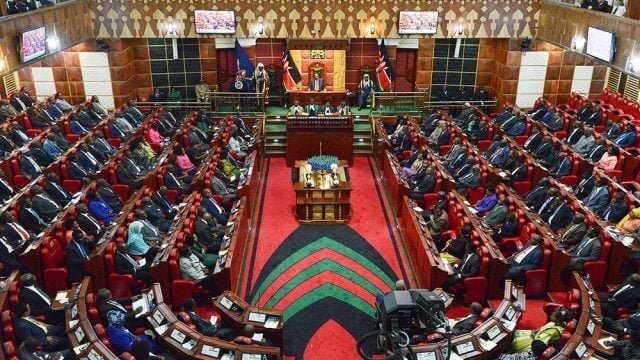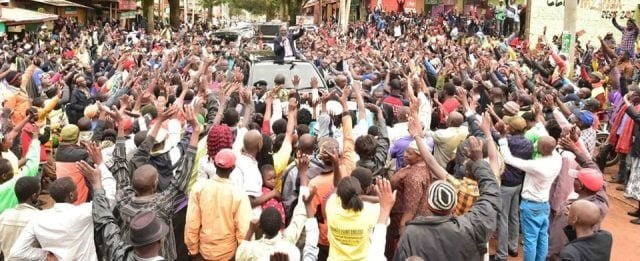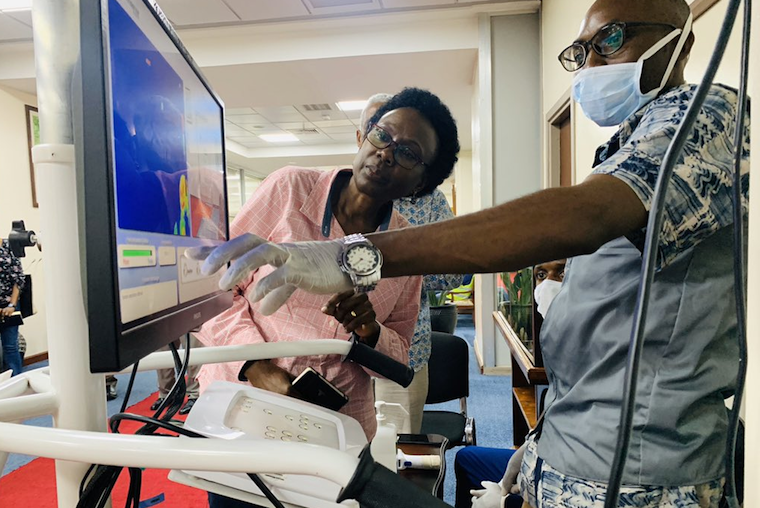Making truth powerful;
Making power truthful
Most African countries pride themselves on being free from the shackles of colonialism. However, only a few can demonstrate utility of this freedom, over half a century into self-rule. A glimpse at most African states reveals the sorry state of the social contract, with Kenya as a perfect representation.
History lessons in primary and high school were filled with tales of valiant leaders, freedom fighters and visionaries. The lessons were rich with stories of a promising Republic, where everyone took pride in their identity and swore fidelity to.
Today, much of that pride and loyalty has been eroded. Hope for a brighter future with the colonialists’ exit seems ever so distant. It is easy to tell in the streets, where most walk with sulking shoulders. They are weary of the ever-rising cost of living, ballooning public debt and mental exhaustion from a government that seems determined to cast a deaf ear to the cries of its people.
Sadly, this tale is not even remotely related to failings of democracy. It is more of theatrics and power hunger. If recent happenings are anything to go by, the proverbial light at the end of the tunnel is likely to stay out of sight for the foreseeable future. The people’s purported leaders have turned into their greatest enemies, disguised as friends and tribemates. They are more focused on games of thrones, to the extent of disregarding the rule of law, if only to remain politically potent.
Unfortunately, it is the citizens who pay the price for a leadership more focused on political expediency than catering for their greater good.
While the rule of law takes no sabbatical in a constitutional democracy, the spirit of the Constitution has been constantly eroded. Most interestingly, those at the apex of leadership who, upon assumption of office, stand before the masses on the tallest platforms, swearing to protect and defend the Constitution, have been at the forefront in disregarding the rule of law. What gives these leaders the audacity to boast about being defenders of the constitution, yet fail to comply with countless court orders? How is fidelity to the Constitution demonstrated by adamantly pushing for amendments without adhering to laid down procedures?
Kenyans need to be wary of the path we are treading. Ours is a dispensation of leaders willing to sell their souls for political expediency. They do not mind stooping as low as to propagate an artificial insistence of errors in our guiding principles and class wars.
This unprincipled leadership has seen Parliament – a powerful institution with a representative mandate to address the electorate’s needs and grievances through progressive legislation – ignore it. Instead, the institution is constantly plagued with allegations of bribery to pass legislation that makes life even harder for those they represent. Traces of Executive influence over critical legislative decisions are all over the institution, bringing to question its legitimacy and independence. With a Legislature that cannot exercise impartiality and sound judgment on decisions impacting the future of our nation, what justifies their continued occupancy in the House?

Members of The Kenya National Assembly in Session | Source: Aljazeera
The rot extends throughout the entire Executive. For close to a decade, Kenyans have been subjected to an overbearing Executive that bulldozes its ambitions, with little regard to citizens’ pleas. It is not shy of overstepping its mandate and disregarding boundaries delineating the three arms of government. Even more worrying is the rot that characterizes this arm of government. State ministries, departments and agencies are not strangers to allegations of graft and misappropriation of funds. Every year, the Auditor General’s reports reveal the ever-so rotten systems hijacked by unknown cartels plundering public funds. While you would expect necessary measures to be taken to stop the bleeding and subject perpetrators to the full force of the law, the Executive does little more than issuing threats, warnings and establishing inquiries.
In 2020, reports emerged of ‘Covid Billionaires’, who took advantage of the pandemic to enrich themselves at the expense of citizens and health workers at the epicenter of the shock. The lack of transparency that cuts across ministries and departments is a plague that has been normalized. With Parliament, the institution charged with oversight crippled with the very ailment crippling the Executive, who will step up and stop the bleeding before the country withers away?
Beyond the runaway corruption, have been the Executive’s attempts to undermine the spirit of the Constitution. There have been constant disobedience of court orders and continued attempts to bypass legal processes to amend the Constitution. Neither is the Judiciary a stranger to allegations of corruption and bias.
In the words of Edward Abbey: “Power is always dangerous. Power attracts the worst and corrupts the best.” Kenyan leaders offer the best demonstration of how power corrupts unprincipled characters. Across levels of the government, state officials have demonstrated time and again that they could leverage any opportunity at their disposal to do what serves individual interests rather than act in the common good.
The result is what we see today; a Legislature that has failed to play its oversight role, an overbearing Executive that does not respect the rule of law, and a crippled Judiciary that delays in delivering justice.
Now aware of imminent elections, the political elite has begun its false rhetoric. In big political gatherings, they are unleashing utopian ideologies and promises of a ‘New Kenya’. They conveniently forget their ills and failures, turning into self-proclaimed messiahs promising to lead the country to the land of milk and honey.

Kenyan politician holding a political gathering | Source: Daily Active
Our leaders should remember that Kenyans do not need additional posts in Parliament to feel adequately represented. All they ask for is for leaders to exercise sobriety in executing their mandate, to demonstrate fidelity to the Constitution and make conscious decisions across various tiers of government that accurately represent and address immediate and future needs of the electorate. This demands independence of the three institutions of government, and respect for boundaries distinguishing them, as set by the Constitution, while recognizing their interdependence. It demands that our leaders do what is meaningful, rather than expedient.
Kenyans too, need to be ever so cautious. We must not be swayed by euphoric declarations by our cunning politicians. Now, more than ever, we must exercise sound judgment and look beyond tribal lines and imaginary class wars. If the bleeding of our democracy is to stop, citizens have to be alive to the fact that the power of the Constitution rests with them. They must begin to demand accountability from elected leaders and look beyond euphoric chants that only serve to blind them from the catastrophic streak of failures.
Moving forward, citizens must begin to judge their leaders based on policies implemented and how best they have guarded the power bestowed on them. Our democracy is now mature enough to look beyond the number of tarmacked roads and appearances at village harambees.
If we have learned anything since independence, and, even more painfully, over the last decade, it is that even the tallest skyscrapers and thickest concrete jungle and grandest infrastructure project cannot save a business choking from a futile business environment with punitive tax regime. Only progressive and responsive policies constitute the desirable metric to judge performance of our leaders.
Crisis has a way of stripping people naked to reveal the size of their cojones. It trumps lies, pretense and all manner of mediocrity in people, especially leaders.
Recently, a sense of bewilderment gripped the world when the US President, on live television, suggested that injection of disinfectant be used to treat COVID-19. While he later, in his clinical fashion, changed the narrative claiming he was only being sarcastic, the harrowing reality of emptiness and lack of leadership where it is most expected was evident for everyone to see.
Unsurprisingly, many leaders across the world have been rather underwhelming in their handling of the COVID-19 pandemic. Just a handful of leaders in a few countries - like New Zealand, Germany, Denmark, Finland, Taiwan - have shown leadership worth emulating.
In Africa, countries like South Africa, Uganda and Rwanda have ramped up testing to quickly identify and isolate Corona virus cases and trace contacts. However, in other countries like Tanzania, basic measures such as providing social distancing guidelines are yet to be enforced.
Other countries have leaders who prefer looking like they are leading instead of actually leading. In Kenya, several politicians spent money on branding donated facemasks and hand sanitizers instead of investing in more sanitizers, personal protective equipment and financing the health system. Some section of religious leaders even moved to court to oppose government’s ban on church gatherings, completely oblivious of the risk that this could amplify the spread of the virus.
The Power of Truth
Leadership at this moment of crisis means being a champion for truth. This is evident from Angela Merkel who has been honest and open with her citizens on the status of the pandemic. It is by being truthful that the true extent of disease can be established and mitigation measures set up.
From the U.S to the U.K, China and across Africa, those charged with speaking truth to power have deliberately chosen to do the very opposite. Reports of leaders disregarding expert advice and silencing those who attempt to speak up against governments’ actions or inaction are scattered all over. Some have even gone as far as openly castigating the media for seeking answers when in real sense they are avoiding accountability.
It is during such times that leaders – especially those in government – should remember and be guided by the words of John F. Kennedy: “Without debate, without criticism, no administration and no country can succeed. That is why our press was protected…to inform, arouse, reflect, to state our dangers…to indicate our crises and our choices, to lead, mould, educate and sometimes even anger public opinion.”
Decisiveness in dealing with the pandemic
One of the hallmarks of great leadership is being able to make decisive and effective decisions when everyone is looking up to you. As early as January, Taiwan had established 124 measures against COVID-19 when the first hint of the virus was detected. In New Zealand, it did not take long for the Prime Minister to implement a countrywide lock down and enhance alertness. In Uganda, the county was swift to seal off all entry points, while ramping up testing. Whereas the viciousness of the virus was already evident, some countries have not been as effective in their response strategies.

Uganda Health Minister Jane Ruth Aceng assessing thermal scanner | Source: The Observer
Up to now, some countries, especially in Africa, are yet to set up guidelines for combating the disease. In others, like Kenya, where a dusk-to-dawn curfew is in place, it is difficult to judge effectiveness of the same, given the manner in which security officers are implementing government directives. Further, there have been reports and widespread concern regarding status of the quarantine facilities. If images shared are anything to go by, these quarantine centers that are to serve as containment centers for the virus are slowly morphing into incubation centers for the same.
Decisiveness in leadership in the era of COVID-19 also means being meticulous and strategic with containment measures. It calls for leadership to be innovative and cognizant of realities of the contexts within which they operate. No wonder, many African leaders have been criticized for ‘copying and pasting’ intervention measures applied in other countries without assessing their fitness to the unique situations in their countries.
A time for compassion and love
This is the time for leaders across the board to exercise love and compassion for the people they represent. This is the time for elected officials to show that they are pro-people and demonstrate that they are in touch with lives of the citizenry. This is the time for healthcare workers to be provided with the entire arsenal they need for this humongous fight.
Commendable efforts have been seen world over where individuals and corporations have stepped in to bridge gaps by providing crucial Personal Protective Equipment for frontline healthcare workers as well as food and sanitation products to the less fortunate. Some religious leaders, beyond their spiritual support, have stepped in to provide economic and psychological support to those who need it. We have seen individuals spending their time and resources to help sensitize communities in their local languages on importance of social distancing and maintaining high levels of hygiene. Such is the motif of pride and leadership to be emulated.
Early in the 20th century, it took 36 months for the world to manage the Spanish Flu. While we are faced with an almost similar pandemic, the world today – unlike in the 20th century – is better placed to fight this war. We are more advanced technologically and intellectually, putting us at a better position to understand the enemy and fight it effectively.
While we have the resources, proper leadership will catalyze effectiveness of the fight and push us close to victory. The world needs leaders who communicate effectively and not be “sarcastic”. It needs leaders to collaborate with everyone in the community, take decisive action and be intentional about finding solutions that will help us fight this war.
Leadership in the wake of the COVID-19 pandemic is not about being an authoritarian. It is about being bold enough to speak truth to power, making truth powerful and making power truthful. It is about setting aside selfish ambitions and marshaling resources– including knowledge, expertise, human resources, money and political capital to fight as one army.
